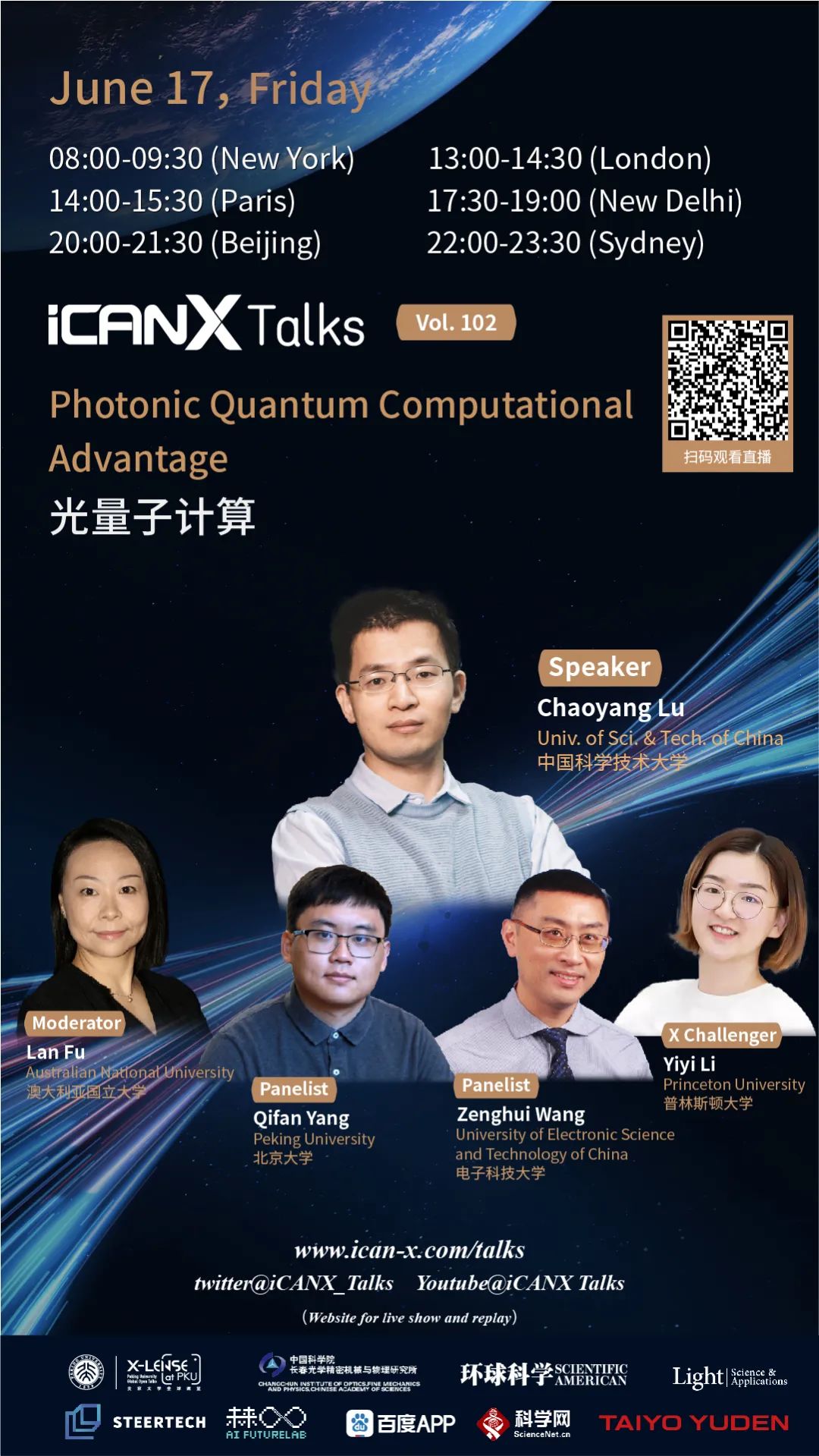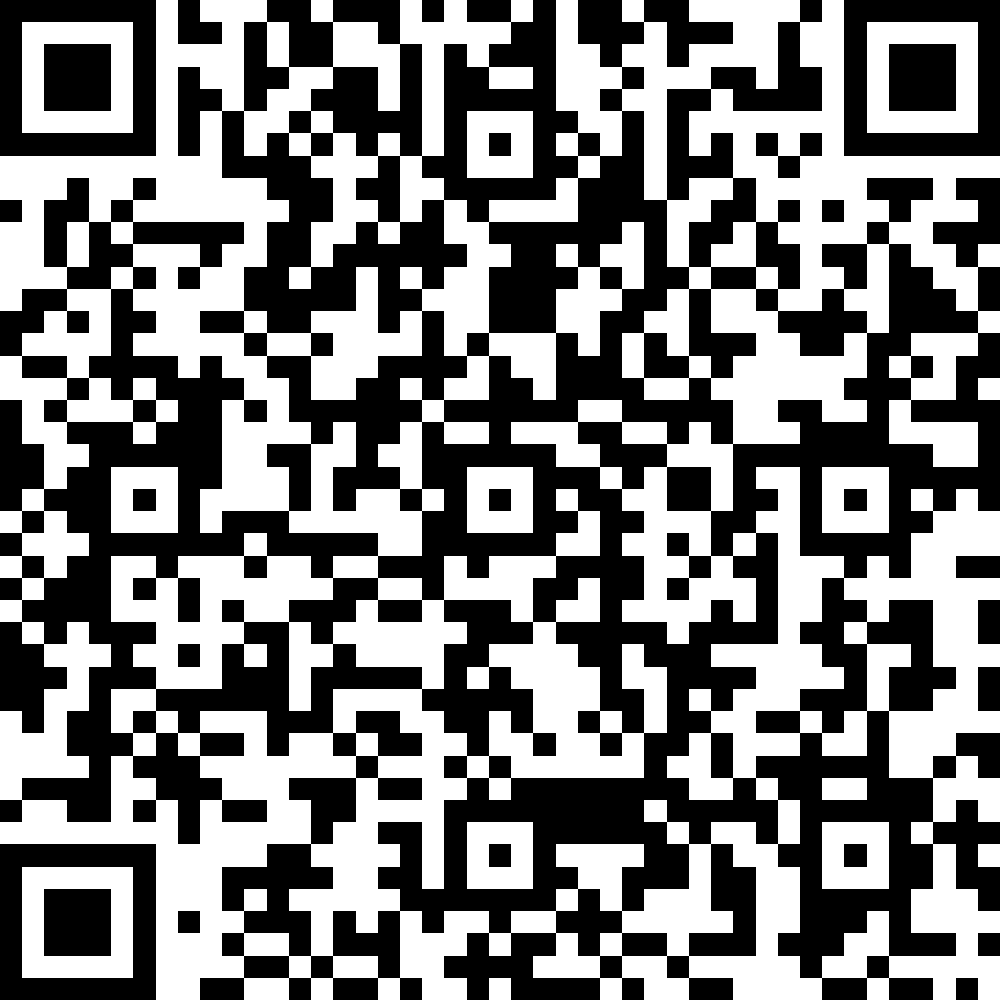[Lecture] Photonic quantum computational advantage
Jun. 17, 2022
Speaker: Chao-Yang Lu, Professor of Physics at USTC
Moderator: Lan Fu, Australian National University
Panelist: Qifan Yang, Peking University
Time: 20:00-21:30 pm, June 17, 2022, GMT+8
Venue: Scan the QR code
Abstract:
The main challenge for scaling up photonic quantum technologies is the lack of perfect quantum light sources. We have pushed the parametric down-conversion to its physical limit and produce two-photon source with simultaneously a collection efficiency of 97% and an indistinguishability of 96% between independent photons. Using a single quantum dot in microcavities, we have produced on-demand single photons with high purity (>99%), near-unity indistinguishability, and high extraction efficiency—all combined in a single device compatibly and simultaneously. Based on the high-performance quantum light sources, we have implemented boson sampling—which is an intermediate model of quantum computing, a strong candidate for demonstrating quantum computational advantage and refuting Extended Church Turing Thesis—with up to 113 photon clicks after a 144-mode interferometer. The photonic quantum computer, Jiuzhang, yields an output state space dimension of 10^43 and a sampling rate that is 10^24 faster using the state-of-the-art simulation strategy on supercomputers.
Biography:
Chao-Yang Lu obtained his Bachelor's degree from the University of Science and Technology of China (USTC) in 2004, and PhD in Physics from the Cavendish Laboratory, University of Cambridge in 2011.He is currently a Professor of Physics at USTC focusing on quantum computation, solid-state quantum photonics, superconducting circuits, and atomic arrays. He has been awarded as an OSA Fellow (2017), Fresnel Prize (2017), AAAS Newcomb Cleveland Prize (2018), Nishina Asian Award (2019), IUPAP-ICO Young Scientist Prize in Optics (2019), OSA Adolph Lomb Medal (2020), APS Rolf Landauer and Charles H. Bennett Award in Quantum Computing (2021), and James P. Gordon Memorial Speakership (2021).
Source: iCANX

